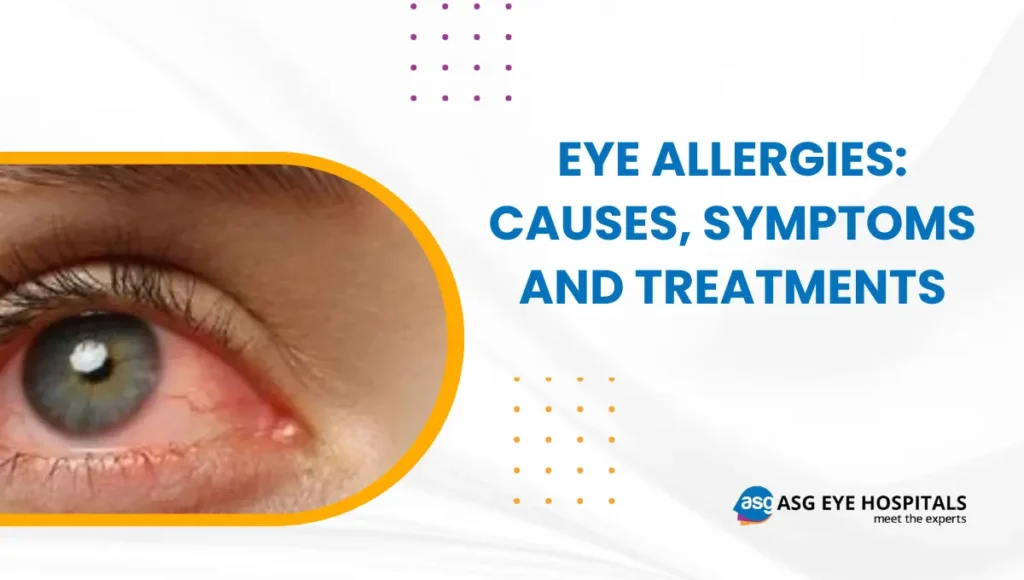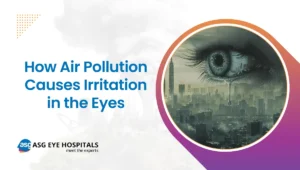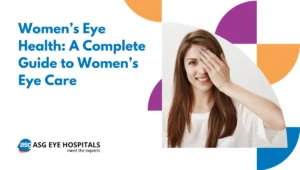Eye allergy, also known as allergic conjunctivitis, can be an uncomfortable and irritating condition affecting millions worldwide. Eye allergies are characterized by itching, swelling, and redness of the eyes that are triggered by many environmental factors. This blog tells you the most common causes of eye allergies, symptoms of eye allergy, and eye allergy treatments. Additionally, we will discuss the importance of seeking specialized care from eye consultants, especially during pregnancy.
What are the Most Common Causes of Eye Allergy?
Eye allergies are attributed to a range of environmental factors, and identifying the specific trigger is crucial for effective management. The most common causes of eye allergies are:
- Pollen from trees, flowers, and grass can be the main culprit, especially during peak season.
- Tiny organisms in household dust can trigger allergic reactions, affecting the eyes.
- Allergens on skin cells, urine, and animal saliva, particularly dogs and cats, can lead to eye allergies.
- Mold growth in damp environments can release spores into the air, causing eye irritation.
- Pollution, smoke, and other airborne pollutants can irritate the eyes, leading to allergic reactions.
Apart from allergens, various factors can contribute to eye irritation. These may include:
- Dry eyes: Insufficient tear production or poor tear quality can result in dry eyes, irritating.
- Contact lenses: improper care or extended use of contact lenses can lead to eye irritation and discomfort.
- Exposure to harsh weather conditions: wind, sunlight, and extreme temperature can contribute to eye irritation.
- Chemical exposure: contact with certain chemicals, Whether in household products or workplace environments, may cause eye irritation.
What are The Symptoms of Eye Allergy?
Recognizing eye allergy symptoms involves a combination of preventive measures and targeted treatments. Here are some strategies to alleviate symptoms:
- Redness: Blood vessels in the eyes dilate, leading to a noticeable red appearance.
- Itching: Persistent itching or a burning sensation in the eyes is a typical allergy symptom.
- Swelling: The eyelids may become swollen, making it challenging to open or close the eyes comfortably.
- Watery Eyes: Excessive tearing or a watery discharge from the eyes is an allergic response.
- Sensitivity to Light: Eyes may become more sensitive to light, causing discomfort.
How to Treat Eye Allergies?
Eye allergy treatments involve a combination of preventive measures and targeted treatments. Here are some strategies to alleviate symptoms:
- Avoidance of Triggers: Identify and minimize exposure to allergens by keeping windows closed, using air purifiers, and maintaining a clean living environment.
- Eye Drops: Over-the-counter or prescription eye drops containing antihistamines or decongestants can relieve itching and redness.
- Cold Compress: Applying a cold compress to the eyes can help reduce swelling and soothe irritation.
- Artificial Tears: Lubricating eye drops can alleviate dryness and discomfort associated with eye allergies.
- Oral Antihistamines: Non-drowsy oral antihistamines can be effective in managing systemic allergy symptoms, including those affecting the eyes.
Eye Infection During Pregnancy : Pregnancy brings about significant changes in a woman’s body, including potential shifts in the immune system. While eye allergies do not directly threaten pregnancy, it’s crucial to address any eye infections promptly. During pregnancy, hormonal changes may make women more susceptible to certain infections.
If experiencing eye discomfort or noticing signs of infection during pregnancy, it is advisable to consult an eye specialist or consultant. They can recommend safe and appropriate treatment options that do not jeopardize the health of the developing fetus.
Conclusion
Eye allergies can be a recurring challenge for many individuals, impacting their quality of life. Understanding the eye irritation causes, recognizing symptoms, and adopting effective treatment strategies are vital steps in managing this condition. Seeking professional help from eye specialists and consultants ensures accurate diagnosis and tailored interventions, promoting overall eye health. During unique life stages, such as pregnancy, it becomes even more critical to prioritize eye care and address any concerns promptly. By staying informed and proactive, individuals can enjoy clear, comfortable vision and minimize the impact of eye allergies on their daily lives.
When dealing with persistent or severe eye allergies, seeking professional help from eye specialists becomes essential. Eye specialist hospitals and consultants are equipped with the expertise and resources to diagnose and treat various eye conditions, including allergies. These professionals can perform thorough eye examinations, prescribe appropriate medications, and offer personalized recommendations for managing eye allergies.




